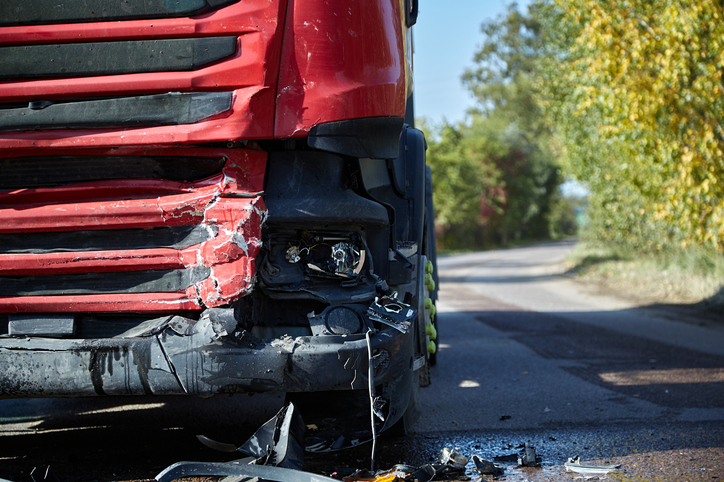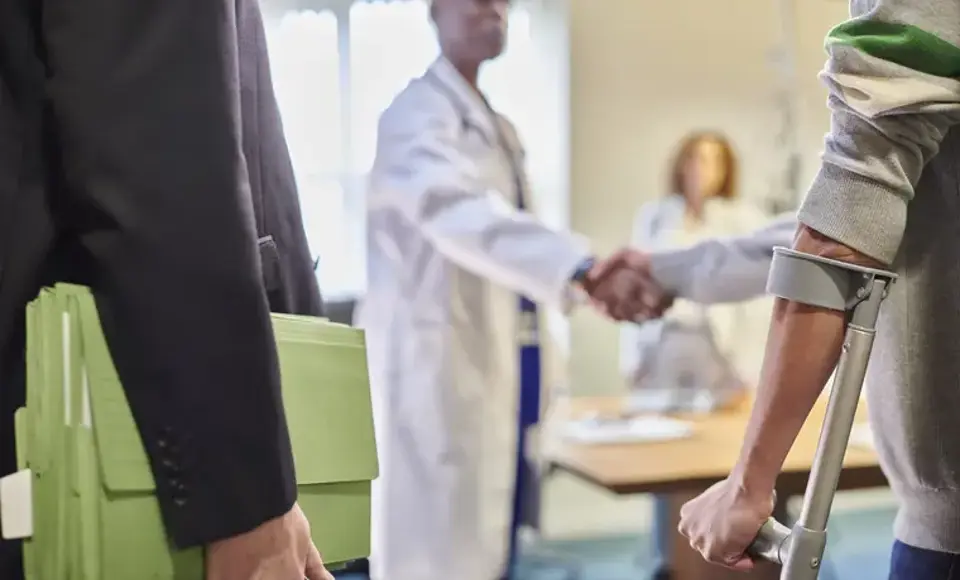Trucking accidents can cause devastating injuries and losses, leaving victims with mounting medical bills, lost wages, and emotional trauma. One of the most important questions victims face is determining who to hold accountable for the accident. Should you sue the truck driver, the trucking company, or both? Understanding Liability in a trucking accident is key to securing the compensation you deserve. This guide will break down how Liability is determined, your legal options, and how a lawyer can help during this challenging time.
Determining Liability in a Trucking Accident
Trucking accidents are unique because Liability often involves more than just the driver. Depending on the circumstances of the crash, multiple parties may share responsibility.
1. The Truck Driver's Liability
Truck drivers can be directly responsible for causing accidents due to their actions or Negligence. Common driver-related causes of trucking accidents include:
Driver Fatigue
Despite federal regulations limiting hours of service, some drivers push beyond safe limits, increasing the likelihood of accidents.
Distracted Driving
Texting, eating, or engaging in other distractions behind the wheel can cause devastating crashes.
Reckless or Impaired Driving
Speeding, driving under the influence of drugs or alcohol, or failing to obey traffic rules are clear examples of driver negligence.
If the truck driver’s behavior directly caused the accident, they can be held liable for your injuries and damages.
2. The Trucking Company's Liability
Trucking companies often share Liability due to their role in hiring, training, or supervising drivers. They are also responsible for maintaining safe practices and complying with federal regulations.
Trucking companies can be held liable for:
Negligent Hiring Practices
Employing unqualified or poorly trained drivers increases the risk of accidents. Companies have a duty to perform background checks and train drivers properly.
Improper Maintenance
Trucks must be regularly inspected and maintained to ensure safe operation. Failure to repair brakes, tires, or other essential components can make trucking companies liable.
Unrealistic Schedules
Imposing schedules that force drivers to exceed speed limits or skip rest breaks can lead to Negligence by the company.
Because trucking companies often carry substantial insurance policies, they may become a primary target in a trucking accident lawsuit.
3. Third-Party Liability
Sometimes, third parties may also share responsibility, including:
Truck Manufacturers
Defective truck parts, such as faulty brakes or tires, may result in Liability for the manufacturer.
Cargo Loading Companies
Overloading or improperly securing cargo can cause a truck to become unstable and lead to an accident.
Identifying all responsible parties ensures you pursue maximum compensation for your injuries.
Legal Options for Trucking Accident Victims
Once Liability is established, you have several legal options to recover damages. These include:
1. Filing a Claim Against the Truck Driver
If the accident was caused solely by the driver’s Negligence, you may file a claim against their personal assets or insurance policy. However, this may not always fully cover your damages, as truck drivers often have limited coverage compared to the size of the losses in a trucking accident.
2. Filing a Claim Against the Trucking Company
When the trucking company holds full or partial Liability, you can file a claim against them. Trucking companies usually have commercial insurance policies with higher limits, increasing your chances of receiving fair compensation.
3. Pursuing Both Driver and Company
It’s common to file claims against both the driver and the trucking company. Often, trucking companies are held responsible under a legal doctrine known as “respondeat superior,” which states employers can be liable for their employees' actions when performed during their job.
4. Filing a Lawsuit Against Other Parties
If third-party Negligence contributed to the accident, such as defective truck parts or improper cargo loading, you may need to file separate claims against those entities.
How a Lawyer Can Assist After a Trucking Accident
Trucking accident cases are complex, often involving multiple parties, federal regulations, and aggressive legal teams from trucking companies and their insurers. Partnering with an experienced trucking accident lawyer offers several advantages.
1. Investigating the Accident
Lawyers have the resources and knowledge to conduct thorough investigations, gathering evidence such as:
- Black box data from the truck
- Driver logs and maintenance records
- Witness statements
- Police and accident reports
2. Identifying All Liable Parties
Determining Liability in trucking accidents can be challenging. A lawyer will analyze the evidence to identify all at-fault parties and ensure they are held accountable.
3. Calculating Damages
A lawyer will consider both economic and non-economic damages, including:
- Medical expenses
- Lost wages and earning potential
- Pain and suffering
- Property damage
- Long-term rehabilitation or care needs
4. Negotiating with Insurers
Insurance companies representing trucking companies often aim to minimize payouts. An experienced lawyer will negotiate aggressively on your behalf, ensuring fair settlement offers.
5. Representing You in Court
If a fair settlement cannot be reached, your lawyer will take your case to trial, presenting a compelling argument to secure the compensation you deserve.
Austin Truck Accident Attorneys
If you or a loved one has been involved in a trucking accident in Austin, Texas, it's essential to understand your legal rights and options. At Briggle & Polan, PLLC, our experienced personal injury attorneys are here to help you navigate the complexities of your case. We are committed to securing the compensation you deserve and holding responsible parties accountable. Contact us today at (512) 400-3278 for a consultation and let us guide you through this challenging time.









